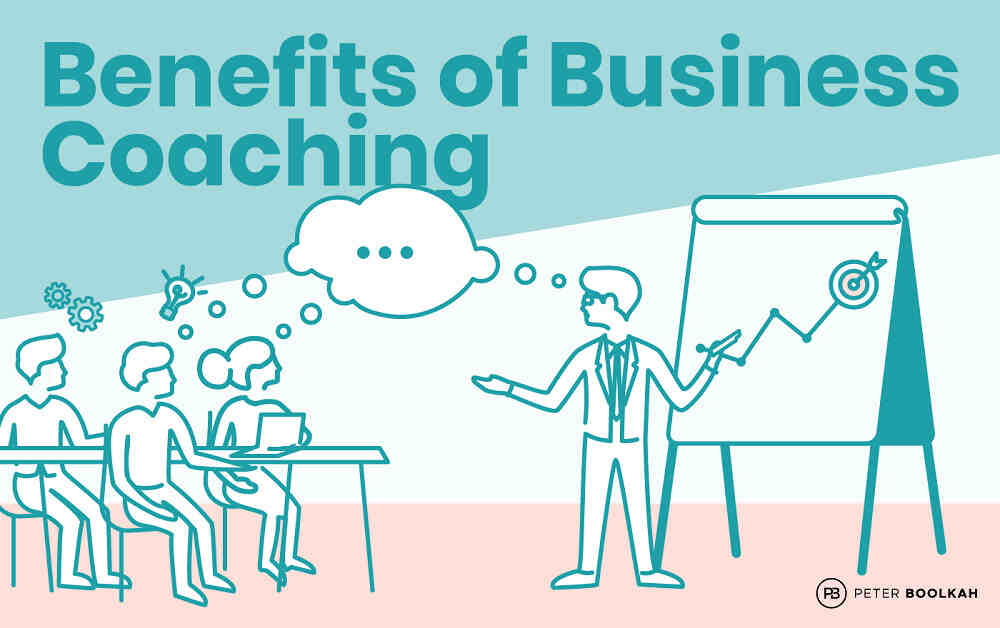Are you a business owner looking to grow your business and achieve success? Business coaching could well be the answer. It’s a powerful tool that can help you reach your goals, no matter what stage of entrepreneurship you are in.
Business coaching services offers entrepreneurs personalized guidance, advice, and support to make smart decisions, set achievable goals, and maximize their potential. By working with a qualified coach who has experience in the industry, entrepreneurs can learn how to become more successful in their personal and professional lives. Do you want to unlock the potential of your business and become a successful entrepreneur?
Business coaching is the answer. It’s an invaluable tool that can help entrepreneurs grow their businesses, reach their goals, and succeed in all areas of life. With personalized guidance from a qualified coach with experience in the industry, entrepreneurs can learn how to make smart decisions, set achievable goals, and maximize their potential for success. Let’s dive into how business coaching can help you meet your entrepreneurial aspirations!
What is a Business Coaching
Business coaching is a service that can help many business owners. Whether you’re running a small business or a large company, the right coach can provide invaluable advice and support to help you succeed. A good coach will evaluate your situation and develop strategies tailored to your needs. They’ll also analyze data, give feedback, and help steer you in the right direction. Moreover, a coach can be an inspirational source of motivation and help you stay accountable to your goals. Working with a business coach can give you the confidence and drive to progress and achieve success.
Benefits of Business Coaching
Business coaching can be invaluable for small business owners looking to succeed. This service helps entrepreneurs navigate the complex and ever-changing business world, providing guidance and feedback while holding them accountable to reach their goals. With a coach, you’ll have access to the experience and expertise needed to create a successful business. They can help you identify areas of your business that need improvement, create action plans to reach your goals and provide emotional support along the way.
Business coaching also offers peace of mind; knowing that someone is constantly watching out for your best interests can be a huge relief! By investing in a coaching service, small business owners can take their endeavours to the next level, ensuring their success for years.
In addition to providing support and guidance throughout your journey, a business coach brings much-needed objectivity. While running your business daily, it’s easy to become overwhelmed or discouraged; having someone with an outside perspective can help you stay focused and motivated. Coaches also bring an arsenal of resources, such as industry contacts and strategies, that can be leveraged to help your business succeed. With exemplary coaching services, small business owners can reach their potential with confidence and ease.
Investing in a coaching service is an investment in yourself. Having a coach by your side can give you the clarity and direction necessary to take your business to the next level. With their help, you’ll be able to achieve success more quickly and efficiently than ever.
Business Coaching vs Traditional Consulting
Business coaching and traditional consulting have advantages, but the most significant difference lies in the approach. Traditional consulting is more focused on advising clients on what to do with their business. On the other hand, professional business coaches take a more holistic approach – they help clients identify areas of improvement and develop skills that can be applied to the business.
Business coaches provide an invaluable service for their clients by helping them develop their abilities and strengths. This approach allows clients to identify their opportunities and take ownership of their business decisions. Business coaches go beyond simply giving advice – they help clients apply these skills and knowledge to solve problems, make decisions, and work towards goals more effectively and efficiently.
Ultimately, the choice between business coaching and traditional consulting depends on the individual’s needs. Business owners who want to improve their skills and take ownership of their businesses may find that working with a professional business coach is the best way to accomplish these goals. On the other hand, those looking for more straightforward advice may prefer to work with a traditional consultant. Either way, the ultimate goal is to improve business performance and create better results for the business owner.
By engaging in either approach, businesses can gain valuable insight into improving their operations and achieving tremendous success. Regardless of your choice, investing in professionals who can provide the expertise and support needed to reach your goals is essential.

What to Look for When you Are Choosing a Business Coach
Choosing a coach to work with can be daunting, especially when unsure of what to look for. Below are some things to consider before making your final decision.
Consider your goals and expectations
When considering hiring a business coach, it’s essential to understand your goals and expectations. Doing this will ensure that any business coaching services you choose are the right fit for your needs. A good business coach can help you create realistic targets and give you an action plan on how to achieve them. They should be able to provide you with the necessary tools and support to grow your business.
It’s important to consider what you hope to gain from working with a coach and ensure that the services they offer align with your goals. A good business coach should be able to help you identify areas for improvement, develop strategies for success and execute those strategies. They should also be able to provide you with constructive feedback and guidance throughout the process.
Choosing a business coach is a decision, so take some time to understand your goals and expectations before finding one that’s right for you. With the proper support, they can help you achieve lasting success.
Contact references and read reviews
When you’re looking for a business coach, it’s important to do your research. Contacting references and reading reviews is essential in ensuring you’ll get actual results and the business success you need. It also allows you to learn more about the potential coach and ensure they fit your needs. Don’t just take someone’s word that they can help; make sure you get the facts before committing.
Doing this will save you time and money in the long run. Investing in your business is essential, so don’t settle for less than the best. Make sure to contact references and read reviews when choosing a business coach. It will help you make the right decision and get the desired results.
Look at their education, experience, and credentials
Once you’ve narrowed your list of potential business coaches, it’s time to do more research. Look closely at their education and training background. Are they certified? Have they completed coach training programs or other coaching certifications? Investigate the qualifications they possess that make them qualified to help you grow your business.
It’s essential to also look at their experience. If they have years of coaching under their belt, that says something about the quality of their work. When it comes to finding a business coach, you want someone who has seen firsthand what works and what doesn’t. Look for a coach with a broad range of relevant experience and a proven track record of success.
Finally, you want to look at their credentials. The best coaches will be members of professional associations and have earned awards or recognition for their coaching skills. A credible business coach won’t hesitate to share evidence of their accomplishments with you – it’s a sign that they take pride in their work.
Choosing a business coach is an important decision – take the time to evaluate their education, experience, and credentials before you commit to working with them. With some research, you can ensure that your investment pays off.
Ask about their availability and pricing
When it comes to experienced business coaching, there are so many options, and it can be hard to know where to start. That’s why when deciding who to hire as your business coach, it’s essential to ask about their availability and pricing. Business coaches often have different packages available depending on the type of help you need, and it’s important to know what works for your budget.
Asking about availability is also essential – if the coach isn’t available at times that work for you, it won’t be helpful in the long run. So ask these questions before committing to a coach to ensure they are the right fit for you. That way, you can find a business coach who fits your budget and schedule and is best placed to help you reach your goals.
Key Coaching Techniques for Entrepreneurs
Strengths and Weaknesses Analysis
Strengths and weaknesses analysis is integral to helping business owners reach their goals. Every business has areas of strength and areas that need improvement. Coaching techniques such as a strengths and weaknesses assessment help entrepreneurs identify what they are doing well and build on that while also pinpointing areas of weakness to address.
By focusing their efforts on their strengths, entrepreneurs can maximize their potential and become successful. By recognizing and addressing areas of weakness, they can develop strategies to improve them and boost overall performance. Through this process, coaching techniques for entrepreneurs can be an invaluable tool in helping business owners reach their goals.
With proper coaching techniques, entrepreneurs can identify their strengths and weaknesses, set realistic goals and create strategies to achieve success. So if you are an entrepreneur looking to maximize your potential, consider taking advantage of the tools available through these key coaching techniques!
Time Management and Prioritization
Time management and prioritization are key components of any successful business. Coaching sessions can help entrepreneurs organize their tasks, focus on the most important ones, and keep them from being overwhelmed by their workload. During a coaching session, your coach can help you identify short-term goals that will lead to long-term success in your business. They can also provide tips and tricks for managing your time effectively and help you develop systems to stay organized.
Additionally, they will be able to help you take a step back from the day-to-day operations and focus on growth opportunities. A coach can be invaluable in helping entrepreneurs make the most of their time, prioritize tasks, and ultimately create successful companies.

Cultivating Emotional Intelligence
Having a professional coach is invaluable when you are an entrepreneur. They can help you to develop emotional intelligence and use it effectively in your life and business. Professional coaches can help you learn how to manage stress, identify unhealthy patterns of behaviour, make better decisions, and build relationships with others. They also know goal setting and the best strategies for achieving success. Having a professional coach will not only help you develop your emotional intelligence, but it can also provide the motivation and direction that you need to move forward with your goals.
You can reach new heights of success as an entrepreneur through their guidance and support. Emotional intelligence is invaluable for anyone looking to build their business and reach their goals. Working with a professional coach can help you gain the skills and insight necessary to be successful in your entrepreneurial endeavours.
No matter what stage of your business you are in, having emotional intelligence is essential for success.
Problem Solving and Decision-Making
As an entrepreneur, you are constantly presented with big decisions and challenges. Knowing how to approach them can be difficult, but having a business coach can help. Coaching is not about giving advice or telling you what to do but helping you find solutions by asking the right questions. A coach helps entrepreneurs build their problem-solving and decision-making skills, which can make all the difference between success and failure. With a coach by your side, you have someone to guide you through the challenges of being an entrepreneur and ensure you don’t get stuck in any one place.
It’s important to remember that coaching is about finding answers from within yourself, not about someone else telling you what to do. By developing your problem-solving and decision-making skills, you can confidently take on any challenge that comes your way.
10 Ways to Improve Your Communication Skills as a Coach
Communication is a crucial set of skills that every coach needs to master if a coach wants to offer top business coaching services.
1. Active Listening
Active listening is one of the most essential skills for any coach. It helps create a safe and comfortable atmosphere for clients and provides an effective way to communicate and establish trust. Active listening involves paying attention to what someone is saying rather than simply nodding along or responding without fully considering their words.
By actively listening, coaches can understand what their clients are saying more deeply. This helps build rapport and create an atmosphere of trust and understanding, essential for any successful coaching relationship.
For those who want to learn more about this skill, The Coaches Training Institute (CTI) offers excellent resources on active listening. These include articles with advice, tools and tips to help coaches hone their active listening skills. Additionally, the CTI offers short courses and longer training for those looking to become certified coaches.
Listening actively is key to becoming a successful coach and forming positive client relationships. With resources like those offered by the CTI, anyone can master this important skill.
2. Practice and preparation
Practice and preparation are essential skills for any coach to master. As a coach, you’ll work with people to help them meet their goals, whether improving a skill or achieving certain milestones. The more prepared you are for each coaching session, your clients will be better off.
A great resource to learn more about these essential skills is the Coaching Excellence program offered by the International Coach Federation. This program provides an opportunity to gain knowledge and develop skills in practice and preparation, as well as other coaching areas such as goal setting, communication, and creating transformative experiences. With this resource, you’ll be able to hone your craft as a coach and help even more clients reach their goals.
3. Confidence
Confidence is an essential trait for any coach to cultivate and master. In working with someone, a coach has the opportunity to help them make meaningful improvements in their lives, and confidence plays a significant role in that process. Confidence can be defined as having faith in oneself and one’s abilities. That sense of self-belief is essential for improving and achieving success. For any coach looking to learn more about the topic, the American Psychological Association (APA) is an excellent resource for understanding confidence and its importance in coaching.
The APA offers a wealth of information about cultivating confidence and working with clients from various backgrounds, from research papers to blog posts. With these resources, coaches can use them to become more knowledgeable and better equipped to help their clients succeed. With confidence in their abilities, coaches will be able to provide the best advice and guidance for those they are working with. By getting a better understanding of confidence, coaches can give their clients the support they need on their journey towards improvement.
4. Clarity
Clarity is an essential tool for any coach when helping their clients. It helps provide focus and direction in the coaching process and allows coaches to help their clients achieve tremendous success. For business owners and entrepreneurs, clarity can be a powerful asset to help them make better decisions, work more confidently, and ultimately reach their goals faster.
Fortunately for coaches, plenty of great resources are out there to help them learn more about clarity and how to use it effectively. The Coaching Clarity Challenge is an excellent resource that helps coaches understand the importance of clarity in coaching and provides them with tools and techniques to develop clarity in their clients’ lives. It’s an excellent way for coaches to hone their clarity skills and gain more confidence in helping their clients.
Other helpful resources include books, blogs, and podcasts focusing on coaching clarity topics. With so many resources available, any coach can become an expert in clarity. So don’t let your lack of clarity stand in the way of success – get out there and start learning!
5. Honesty
Honesty is an essential attribute for any professional business coach. It’s important, to be honest with yourself and your coaching clients to achieve real results during sessions. Jim Collins’s book Good to Great made this idea of brutal honesty famous. It emphasizes the importance of facing reality and being truthful about where a business stands to move forward. Being honest with yourself and your coaching clients will help you build trust, create a safe environment for open communication and collaboration, and ultimately achieve the best results for yourself and your clients. Honesty is key to successful business coaching, so keep it at the forefront of every session.
6. Respect
Respect is an integral part of being a coach, and it’s something that business leaders, entrepreneurs, and business owners must develop. According to Brene Brown’s publications, respect is vital in any coaching relationship. We must learn to recognize the inherent value of each client we work with and show them that they are respected, heard and understood. This helps develop the trust that is so essential to the success of any coaching relationship.
As coaches, we are stewards of people’s stories and experiences and must honour their journey by showing them respect for them to move forward toward achieving their goals. By working with clients with respect, we can help them unlock the power and potential within themselves to take charge of their businesses and lives. Respect is a key ingredient in developing successful coaching relationships, so we must remember to pay attention to respect as coaches when dealing with our clients.
7. Open-Mindedness
Open-mindedness is essential for any coach, as it is the foundation of running a successful business. Open-mindedness comes to improving relationships with clients, colleagues and vendors to become the leader they aspire to be. It helps coaches break out of their comfort zone and explore new ideas with an open mind. With this level of awareness and acceptance, coaches can better understand their clients, allowing them to provide tailored advice that leads to personal growth and success.
This is why open-mindedness is a key element in the coaching habit outlined by Michael Bungay Steiner. Without it, coaches may find themselves stuck in a rut with little room for development or improvement. Open-mindedness is the key to unlocking more significant potential and success.
By embracing open-mindedness, coaches can gain a deeper understanding of their clients and help them reach their goals more efficiently. They are better equipped with the tools to create meaningful, lasting relationships that benefit both parties. Open-mindedness also helps coaches recognize opportunities they may have otherwise overlooked. With the right mindset, coaches can strive to be the most effective and successful versions of themselves. Through this, they can genuinely impact their client’s lives and the industry.
Open-mindedness is an important skill to master for any coach, but it doesn’t come easy. It takes dedication and a willingness to explore new ideas, ask challenging questions and be open to change. By using the coaching habit as guidance, coaches can work towards becoming more open-minded to become better leaders. Open-mindedness will help them reach their potential and succeed in all aspects of their profession.
8. Friendliness
Friendliness is a crucial quality for any coach to have. It sets the tone for how a team will interact with each other and allows coaches to create an environment of trust and respect. The renowned John Wooden, the legendary basketball coach, said that “The most powerful leadership tool you have is your example.” Regarding coaching, friendliness is the perfect example of how to lead a team. Through friendliness, coaches can create an atmosphere of positivity and trust that allows players to open up and be their best.
It also helps make the coaching process smoother since it makes everyone more comfortable when interacting with each other. Ultimately, friendliness should be a foundational quality for any coach to master to be successful. By displaying friendliness, coaches can set the tone for a positive and productive team environment.
Another thought leader who has highlighted the importance of friendliness is Marshall Goldsmith, an executive coach and author. He said that “Friendliness should always come first when interacting with people. A coach must be friendly and open to create an environment of trust and respect.” By being friendly, coaches can show their players that they care about them and are invested in helping them reach their goals. Furthermore, friendliness allows for better communication between the coach and their team, essential for any successful coaching experience.
9. Feedback
Feedback plays a vital role in any coaching practice. By providing feedback to clients, coaches can help them understand their strengths and weaknesses and identify areas for growth. According to Marshall Goldsmith, renowned leadership coach and author of What Got You Here Won’t Get You There, “feedforward” is a powerful tool that allows us to make continual improvements in our lives. Feedforward identifies and focuses on achievable goals instead of dwelling on past failures or successes.
By allowing clients to focus on their future, coaches can help them make positive changes that will benefit both parties in the long run. When used correctly, feedback can be an invaluable tool for helping clients reach their full potential. In the right hands, feedback can create lasting success and growth. Any coach needs to master this skill to help their clients reach new heights. With the right approach, feedback can be invaluable to any coaching practice.
10. Responsiveness
Responsiveness is an essential tool that any successful coach should have in their toolkit. Being responsive demonstrates your commitment to supporting your client, shows you care about their success and builds trust. In a world where communication is everything, responsiveness can make the difference between a good and bad experience for your clients.
A great example is the well-known thought leader and coach Tony Robbins. He stresses the importance of being performance-oriented and committed to customer satisfaction. He focuses on actively listening to his clients and responding quickly so problems can be solved promptly and with minimal disruption. Doing this helps your client achieve their goals faster and establishes a strong working relationship that will have positive ripple effects in the future.
In short, responsiveness is key to a successful coach delivering an exceptional customer experience. It may not seem much at first, but this act of attentiveness can go a long way towards creating happy, satisfied clients willing to recommend your services to others. So if you want to ensure your coaching business is successful, don’t forget to stay responsive. It’s one of the most essential qualities for any coach to master.
What is the Difference Between Coaching and Mentoring?
Coaching and mentoring sound similar, even interchangeable, but they’re different approaches to helping people. Coaching is more focused on providing guidance and resources that empower individuals to achieve their goals. It gives them support, advice and strategies for learning new skills or overcoming a problem to achieve their desired outcome. Mentoring, on the other hand, is more about providing emotional support and offering encouragement. Mentors provide advice and act as a sounding board for their mentees, but they also encourage them to think of different solutions and come up with their ideas.
Mentoring relationships can become very close and last long; it’s more of an ongoing relationship than a short-term coaching one. Ultimately, the goal of both coaching and mentoring is to provide support and guidance to help an individual reach their goals, but each approach has its unique flavour. Both can be very effective when used together! So if you’re looking for additional support or want to help someone reach their goals, consider using the power of coaching and mentoring to get them there.

How to Find the Right Business Coach
It can be overwhelming when you’re looking for the right business coach. There are so many coaches out there who all claim to have the perfect formula for success. How do you know which one is right for you? Here are some tips to help you find a great coach with whom you can work:
1. Get clear on your goals. Before you start searching for the perfect coach, take some time to think about what it is you’d like to achieve. Do you want to increase sales? Strengthen customer loyalty? Streamline processes? Decide what you’d like to work on and ensure that your potential coaches have experience in this area.
2. Research credentials and experience. Check out the coach’s background to ensure they have the qualifications and experience in your field or industry. Look for positive reviews online and any certifications they may have earned.
3. Ask around. Network with other business owners to find out if anyone has had a good experience with a particular coach. Getting an honest first-hand account is invaluable when making your decision.
4. Schedule an interview. Don’t be afraid to ask many questions during your initial assessment, and ensure you feel comfortable with their answers. Ask them what they specialize in, how they work with clients, and how they plan to help you reach your goals.
5. Choose a coach who is genuinely invested in helping you reach your goals, who takes the time to understand your business and provides honest feedback, and who has relevant experience.
Finding the right business coach can be daunting, but it doesn’t have to be overwhelming. Do your research and take the time to find someone who is genuinely invested in helping you reach your goals. With the right coach by your side, there’s no limit to what you can achieve!
Are business coaches worth the money?
The answer is: it depends. It all comes down to finding the right coach who meets your business needs and makes the most sense for your budget. A great coach should be able to provide sound advice and guidance, help you set realistic goals, and develop strategies for achieving them. They should also be passionate about helping their clients succeed and be willing to go the extra mile.
When deciding if a business coach is worth the money, it’s essential to consider their qualifications, experience, and track record. Do your research and take the time to read reviews from past clients. Then you can make an informed decision about whether or not hiring a business coach is the best choice for you and your business.
Ultimately, it’s important to remember that there are no guarantees when it comes to working with a business coach. But if you hire someone who understands your needs and has the skills to help you reach your goals, then it could be well worth the investment in the long run.
The Future of Business Coaching Services
Business coaching is a rapidly growing field as companies recognize the importance of having someone to help them stay on track and reach their goals. It’s not just for big businesses anymore; even small businesses can benefit from having a business coach. The future of business coaching looks bright as more people take advantage of its potential to increase productivity, profitability, and overall success.
Business coaches are experts in their fields and understand business owners’ objectives. They can provide insight into which strategies may be most effective to help achieve those goals, as well as help identify any potential roadblocks or areas for improvement. Business coaching isn’t just about helping businesses stay on track; it’s also about helping them become more efficient and successful.
In the future, business coaching will likely involve more technology-based tools to help coaches and businesses better track progress toward their goals. Businesses will be able to receive real-time analytics on performance as well as feedback from customers and other stakeholders. They’ll also have access to predictive analysis to anticipate potential issues and adjust their strategies accordingly.
Business coaching will also become more personalized as coaches become better able to tailor their approaches to the specific needs of each business. Coaches will be able to guide everything from marketing and sales tactics to staffing solutions and organizational structuring.
The future of business coaching is exciting, but it’s also rife with opportunity. By investing in a business coach, businesses can get the guidance they need to become more successful and achieve their goals. Business coaches have the potential to impact companies of all sizes, so if you’re looking to take your business to the next level, now is a great time to start investing in a business coach. With the right coach, you can realize your dreams and reach your full potential.
If you want to discuss how to hire business coach and grow your business – get in touch






